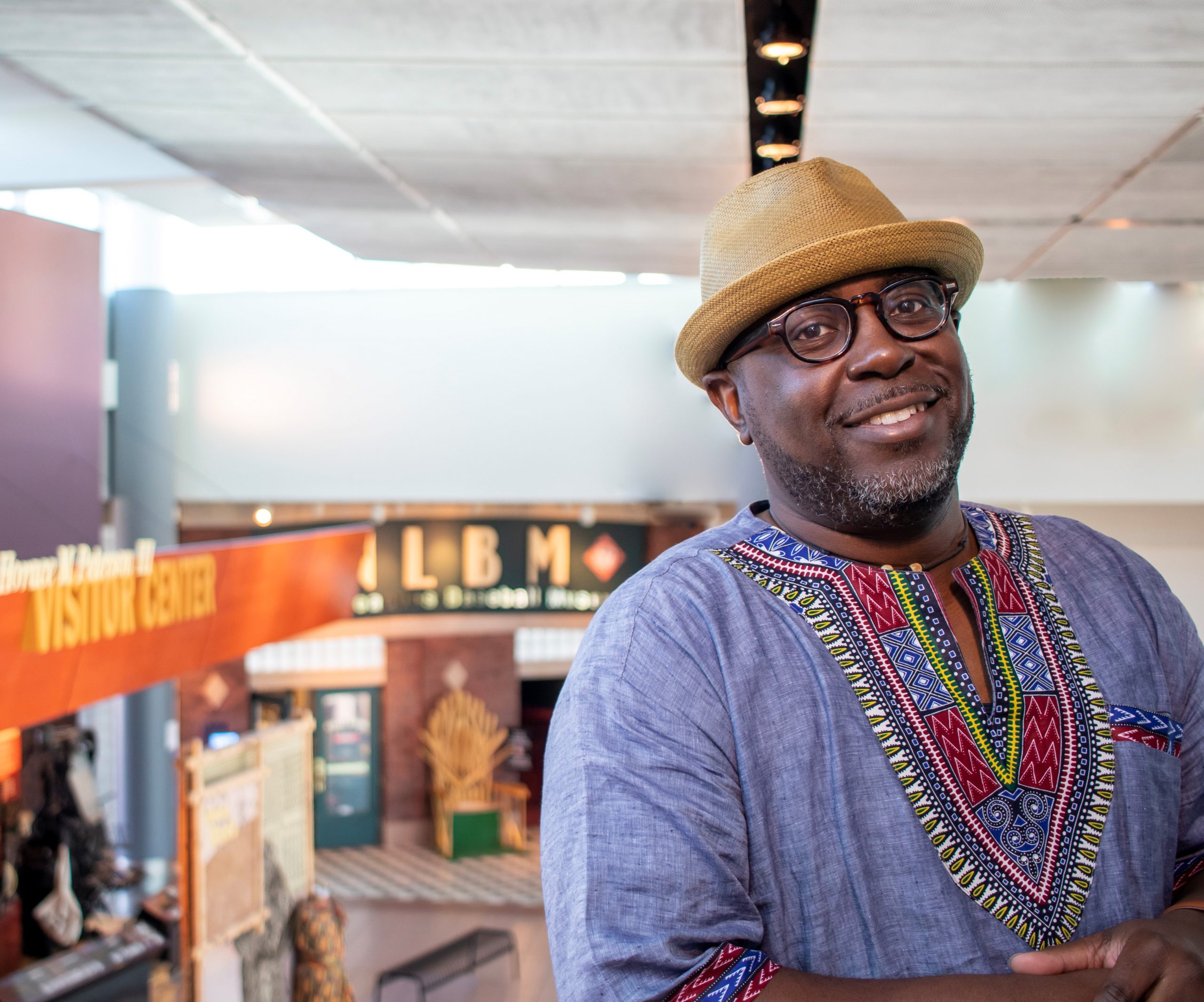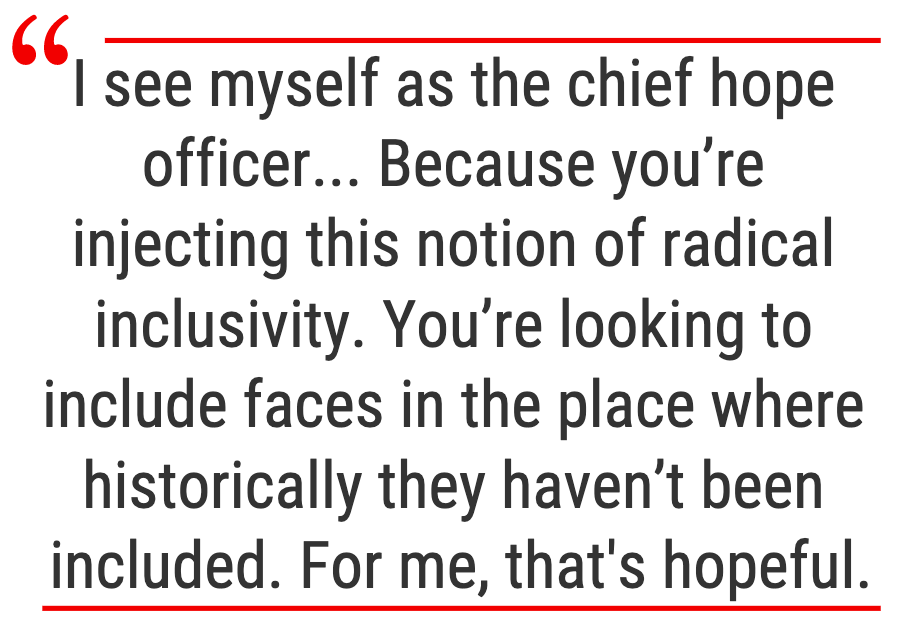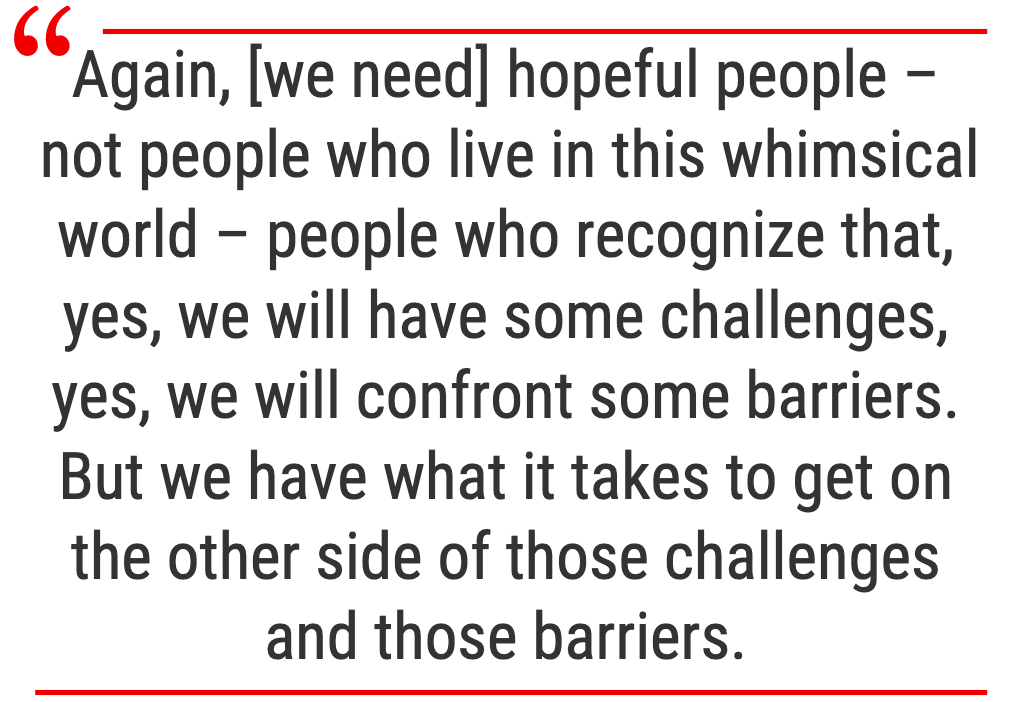
TheHilltopMonitor · Interview with Dr. Smith
William Jewell College formally announced that Dr. Rodney Smith would be appointed to the newly created position of vice president for access and engagement (VPAE) in a July 29 email to the campus community. As VPAE, Smith will head the College’s radical inclusivity efforts, which includes such tasks as “supporting the recruitment and retention of students, faculty, and staff of color and forging meaningful relationships with communities of color in Kansas City and beyond,” according to Jewell President Dr. MacLeod Walls.
Prior to stepping into the VPAE position, Smith worked with Jewell in a consulting capacity through his company Sophic Solutions, wherein he assisted with Jewell’s radical inclusivity initiative. Sophic Solutions is a change management and consulting firm, co-managed by Smith and his partner Stephenie Smith, which, according to the about section of its website, aims to “provide educational consultation to schools and school districts, offer change management solutions to a variety of organization-types and conduct diversity, equity & inclusion training for various companies and associations.
Highlighting his foundational educational experiences that led him on this professional path, Smith shared that he obtained his bachelor’s degree at Morris Brown College, a historically black college in Atlanta, Ga., majoring in fine arts with a concentration in architecture. He then worked at an eight-person architecture firm, which was helping the city of Atlanta prepare for the 1996 Summer Olympics.
Soon after, Smith came to terms with the idea that architecture may not be his calling and redirected his energy toward the educational world. He returned to Morris Brown, hired as a recruiter. This position solidified his affinity for education, and he went on to earn multiple degrees in education.
Have you found any parallels between what you studied in architecture and education?
Absolutely… [P]hilosophically, I like to think that the architect is a master builder of structures. An educator is a builder of thoughts, a builder of people even. Again, any structure has to have a foundation. So, the foundation you put in place on anything, on any person, is the platform on which you build or erect that person. I like to believe that education is helping people to fortify that foundation, and then they become whoever they become as a result of that foundation.
What was your relationship with Jewell prior to accepting this position?
When I first moved to Kansas City, I had my eye on Jewell as a possible place for me to land. It was definitely at the top of my list. At the time, I did have an opportunity to talk to the then-President Dr. David Sallee back in 2011 or 2012, perhaps. The opportunity we were looking at would’ve been in the development office fundraising for the College because my role at Belmont was as director of development. But, I decided against that because I didn’t know the region very well, and I didn’t know Kansas City very much. I also know that, in the development world, I think you have to know the community a whole lot better than I did at the time in order to really do your job well, and so I decided against that role at the time and went elsewhere, mostly to UMKC [University of Missouri-Kansas City]. And UMKC was my first and only public school that I worked for – public, state-supported institution, you know, this big machine. I had never worked for an institution like that.
Again, prior to coming to Kansas City, I was at Belmont, and prior to Belmont I was at Fisk University, and prior to Fisk, I was at Clark Atlanta University in Atlanta, and prior to Clark Atlanta, I was at Morris Brown. All small, private schools. I think Clark was the largest that I had been in, I think Clark’s enrollment at the time was maybe between 5,000-8,000 students, which that was huge for me because most of the schools I worked for and attended were capped at 2,000 students, perhaps. So that was my relationship to Jewell prior to now… I’ve always been looking at the progress of Jewell and what Jewell had been doing over the years.
When you’re stepping into the VPAE position, in your eyes, what duties and responsibilities are defining this role? How are you envisioning that the position will fit into Jewell’s framework?

I’m really excited about this because the possibilities are endless. There’s also [the] burden [of] being the founding vice president for access and engagement, but also, it is the opportunity to put direction to this position and this role and what it does. I’ve been brainstorming about it a lot just on my own, and I’m just really anxious just to get with the rest of the campus community and do some more brainstorming about some possibilities… I see myself as the chief hope officer, right? Because you’re injecting this notion of radical inclusivity. You’re looking to include faces in the place where historically they haven’t been included. For me, that’s hopeful. For me, that’s looking to extend the College’s footprint and its visibility…
…I think part of access begins with just knowledge and people knowing about us, people who had historically not known much about us. So, you know, with [all my past] experience coming together, I see myself wearing a lot of different hats. I look forward to the phone call from the development team that they want me to go on a call with them, they want me to go on a potential donor’s visit.
I look forward to that engagement, to be able to leverage my position, perhaps, who I am and what I’m assigned to do for the College in an effort to help people find out more about the College and ultimately give and donate more to the College. We’ve designed a summer bridge program… I see myself very intimately involved in that program or process of helping students who come from backgrounds who don’t have this long history or tradition of college-going. [I’ll be] helping those students [mainly students of color] navigate the transition from high school to college and also being able to thrive on a college campus.
Of course with my enrollment and admissions background, I see myself going on enrollment and recruitment trips. That’s my first love and being able to sell the college and sell education. I used to say in years past that I wasn’t a salesman, you know, because sales is a tough job, but I realize that I am a salesman. I’ve been selling education for a long time because I believe in it, I’m a product of it. My dad is one of the smartest people you’ll know – he’s a high school dropout… And in one generation, we went from a high school dropout to someone with a doctoral degree…
My kids’ natural next step is for them to go to college. My daughter is going to start her freshman year at Howard University in the next couple of days. She’s already thinking about graduate degrees even though she’s only 18 years old. When I was 18, I didn’t even know what a graduate degree was, let alone a doctoral.
[My middle school principal] was my first introduction into graduate degrees and what [they] really meant and what they did. I only thought about medical doctors in that role. Again, I’ve gone from one generation of a guy who’s extremely intelligent but a high school dropout to now. I say all that to say, I believe in education. I can sell it.
How do you think the VPAE position will help Jewell achieve some of its goals and really become more diverse and inclusive?
Just as you have someone like Joe Garcia who wakes up every day with the finances of the institution on his mind, just as you have someone like Dr. Dema who’s waking up every day with academic progress on her mind, so too you must have someone who wakes up with equity on their mind and how to better infuse equity on our campus. And with that, naturally helps the campus enhance itself with regards to equity and inclusion …
My great grandmother had a green thumb. She could walk by a plant at your house and snap the plant off and take it and love it and nurture it and next thing you know it’s a beautiful plant at her house. I thought she just had magic going, and I was like, “Grandma, how do you do that?” And she was like, “You know, baby, anything you pay attention to will grow.” You give it attention. And it will indeed grow. I think about it with the same regard to equity. If we pay attention to it, it will grow …
I don’t want to send the message that I’m the only person responsible… Eric Blair is the chief enrollment and marketing officer. He’s not the only one responsible for enrollment and marketing. We all are! … [Enrollment] is the responsibility of [everyone from] the president to our groundskeeping staff. And so too is equity. We’re all responsible. Though I will be the chief equity officer, or as I like to say, the chief hope officer, everyone is responsible for hope. Everyone is responsible for equity.
[The position] will just naturally enhance Jewell’s campus because you have someone who’s thinking about it, asking questions around it, putting programs in place. I think a big part of helping the institution do better with regards to diversity and inclusion is really honing in on creating a sense of belonging for students of color or students who identify as LGBTQIA, create a better sense of belonging for those students so that they can have a place that they call home as well, right?…
A big part of creating a sense of belonging – it may sound counterintuitive – is providing opportunities for students to come together, to coalesce among themselves… I think it does give them a community where they can sometimes commiserate and sometimes celebrate among themselves… I think that’s what sustainability is about, what retention is about: helping students to create a sense of belonging.
Do you have plans for how you’re going to engage the current student population in these initiatives? Alumni?
Absolutely. I’ve enjoyed the work we’ve been doing, the radical inclusivity committee and the work we’ve been doing around the initiative, but it has also exposed me to some alumni who are also very much interested in the progress of the institution… [W]hat if we solicited [alumni’s] assistance in creating an undergraduate chapter of [a] fraternity on this campus for African-American male students on your campus now? I’m a member of another one of those fraternities. What if we start a chapter of Alpha Phi Alpha or Omega Psi Phi? I know that there are some alums who were members of these historically black fraternities and sororities that will help us find out what we need to do to establish the undergraduate versions of these fraternities and sororities that are historically serving black and brown students.
…I think in some regards it’s some low hanging fruit because I know there are some students on that campus who know about these fraternities and sororities and want to be involved with these organizations, but Jewell [hasn’t] provided that opportunity for them. And so we have to provide that opportunity for them. It also enhances campus life and campus environment. It infuses energy into the campus because these organizations are a lot of times outwardly facing community service organizations, and they’re always doing stuff to support the community around it, and it just creates energy, it creates opportunity, and it also allows students to build some leadership skills.
What are your thoughts on the current state of diversity and inclusion at Jewell?
I think I’m encouraged. I’m excited about the conversation the College is already having… I think we all can stand to always do more internal work. The internal work of opening our minds more to what diversity can look like, I think it’s an ongoing thing. I heard one of the alum from Jewell say, “We have to look at equity not as a quota system. We have to look at equity like a health assessment.” Meaning, when you go to the doctor, your annual assessment, you’re going to measure your cholesterol numbers, your triglyceride levels. You’re not just doing that at one time, you’re doing that at all times in order to keep those numbers in check. In order to make sure that you’re healthy. So, I think that this opportunity, this role, this position will help the institution to continue in its health assessment of itself. Not that we need to get to a certain number of Latinx students, a certain number of Brown and Black faculty/staff, we need to just make sure that our campus is a healthy environment for whoever wants to come to our campus. That’s what equity is about at the end of the day.

Anything else?
I’m excited to be a part of the campus in a more permanent way because I feel like I’m a part of campus already. I’ve fallen in love with the place. I’m excited to be in this role. I’m excited to meet all of you and for us to move the campus forward with regard to what it’s trying to do – being a more inclusive environment, a place where people feel like they belong regardless of their background. I’m encouraged that the College is aware.
I think it’s a sign of hope that the College is even aware that we need to have this conversation. Again, [there are] hopeful people – not people who live in this whimsical world – people who recognize that, yes, we will have some challenges, [and] yes, we will confront some barriers. But we have what it takes to get on the other side of those challenges and those barriers. That’s why we’re having these conversations. It all makes us better at the end of the day… I look forward to it all.
